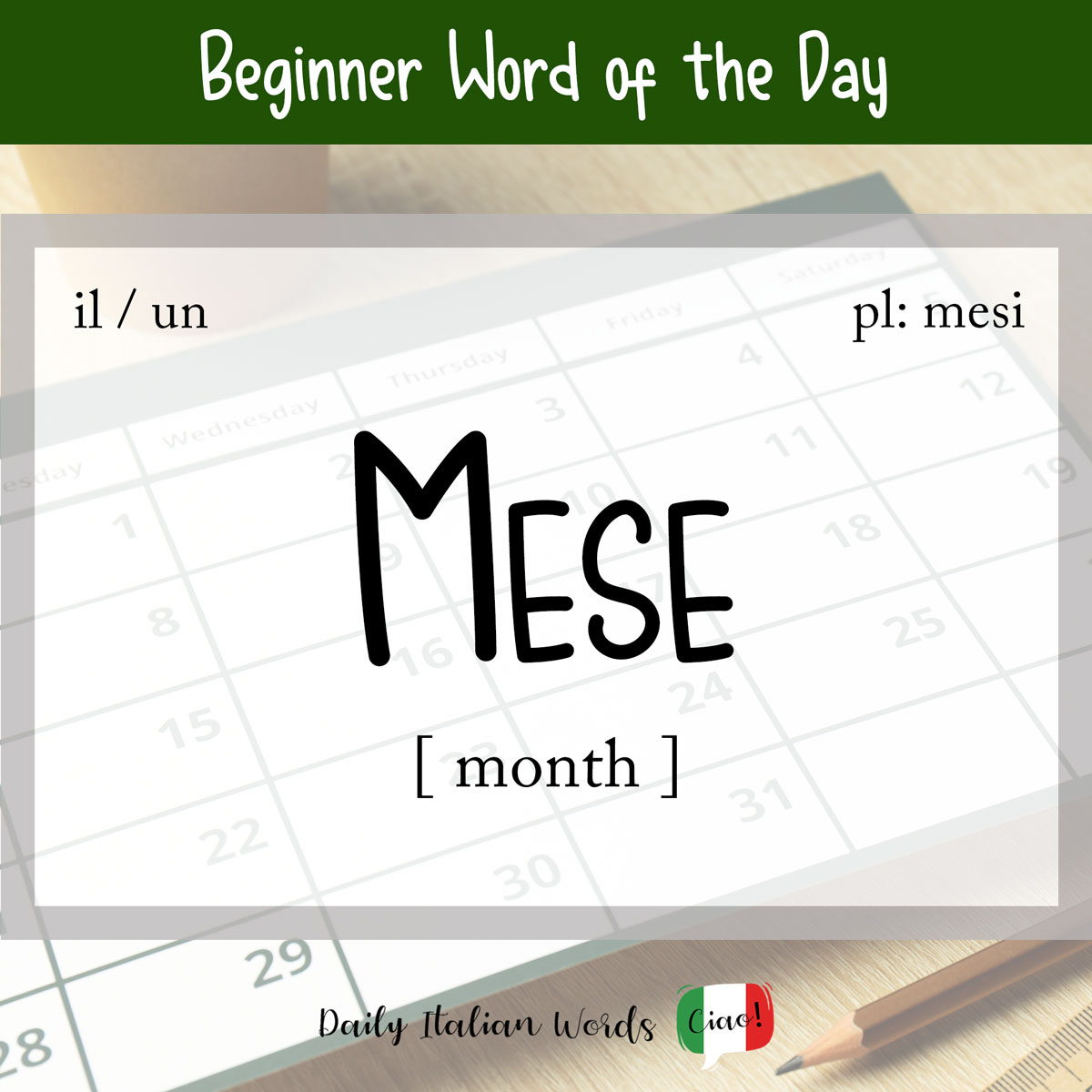Humans have devised various ways to divide time, encompassing the tiniest increments of seconds and minutes to the vast expanse of years, decades, and centuries. Tucked right in the middle lies the unassuming month, known as mese in Italian, serving as the fundamental unit for dividing our calendar year.

Mese is a masculine noun in Italian whose plural form is mesi. You can see the definite and indefinite articles it takes below:
- il mese = the month
- i mesi = the months
- un mese = a month
- dei mesi = (some) months
Each year is divided into twelve months, none of which are written with a capital letter in Italian. The same rule applies to the days of the week.
luglio (July)
agosto (August)
settembre (September)
ottobre (October)
novembre (November)
dicembre (December)

Mese appears in a number of frequently used time expressions. Here are a few of the most common you will encounter during your time in Italy.
- il mese prossimo / il mese scorso = next month / last month
- questo mese = this month
- da mesi = for months
- al mese = per / a month
- a metà mese = halfway through the month
- fra/tra un mese = in a month’s time
- all’inizio / alla fine del mese = at the beginning / the end of the month
- entro fine mese = by the end of the month
Non sento Davide da mesi. Spero che stia bene.
I haven’t heard from Davide in months. I hope he’s ok.
Ci vediamo una volta al mese.
We see each other once a month.

As in English, you can use mese to refer to the number of months a woman has been pregnant. You can add di gravidanza (lit. of pregnancy) to be more precise but it’s not mandatory, as the context is enough for it to be understood.
Lucia è al settimo mese (di gravidanza).
Lucia is seven months pregnant.
By extension, mese can also refer to one’s monthly salary, or the amount one pays for a service or rent.
Il padrone di casa vuole due mesi anticipati.
The landlord wants two months (of rent) in advance.
Some etymologically related terms include mensile (monthly), mensilità (monthly payment / instalment), and mensilmente (monthly / every month).
Heather Broster is a graduate with honours in linguistics from the University of Western Ontario. She is an aspiring polyglot, proficient in English and Italian, as well as Japanese, Welsh, and French to varying degrees of fluency. Originally from Toronto, Heather has resided in various countries, notably Italy for a period of six years. Her primary focus lies in the fields of language acquisition, education, and bilingual instruction.


